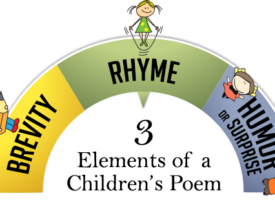I enjoy humor-reading it, watching it and writing it. Writing it is the hardest. But that doesn’t stop me from including it when writing copy. Comedy is an effective tool for delivering a powerful message and a common theme in the most memorable advertising campaigns.
When I first started freelance copywriting I used humor all the time. I’ve backed off since then. The most important goal in copywriting is to present your message clearly and persuasively. If humor helps, great. If not, forget it. So let’s consider a few questions to guide you in humor writing.
Do you think it’s funny?
Granted. We all have a different sense of humor. What you consider funny, I don’t and vice versa. My kids like to remind me that laughing at my own jokes doesn’t mean I’m actually funny. I agree with them in principle, but still consider myself hilarious. Self-denial is much more satisfying. But the point remains. You should be your greatest fan and your greatest critic.
It stands to reason that if you don’t think something is funny then probably no one else will either. And to a certain degree, humor writing is a form of self-entertainment. There’s a motivating sense of satisfaction in writing a joke that you yourself enjoy. But if you’re the only one laughing at the punch line then everyone else may be laughing at you rather than with you. In writing humor, it’s a risk you have to take.
Does it support the message?
Here’s where I strayed early on. I was so determined to be funny that the humor sometimes overshadowed the message. Okay if you’re just going for a laugh. But the goal in copywriting is to make a point…to persuade your audience somehow. If their attention is focused on the humor and misses the point, then what have you accomplished?
I still see this frequently today and I’m sure you do too. What about those Super Bowl ads? Not one of them in 2009 even produced a chuckle from me. My family was aghast. And some of the ads tried so hard to be funny the message was completely lost. A tragedy considering the millions it cost to air them. The reason? Humor needs to be naturally woven into the story line. Otherwise it is forced. And forced humor just isn’t funny. For someone who so thoroughly enjoys comedy, this is hard for me to admit. But sometimes, straight to the point is better.
Is it right for your audience?
This too seems like common sense. The humor for a plumber’s convention will be different than for physicians, for educators and so on. The more specific the audience, the more customized the humor. The wider the audience, the more general the humor. This presents the greatest challenge. The most effective approach is to find the humor in universal life experiences. We identify with the frustrated woman who declares, “Where’s the beef?” And we attempt to create our own versions of the exceptionally clever, “Got milk?” Because we’ve been there. We relate. And we laugh together at the shared experience. As you consider your audience, ask yourself: “What are they dealing with?” Look for a common pain or problem. Then present it in a humorous manner and offer a solution.
Humor is an entertaining way to make a point. Copywriting that uses it successfully will increase sales. And you’ll laugh all the way to the bank.
ABOUT THE AUTHOR
Chip Tudor is a freelance copywriter with a sense of humor who is experienced in writing for all media. He’s written for Wendy’s, LexisNexis and Iams among other recognizable names. To learn more visit: http://www.chiptudor.com



